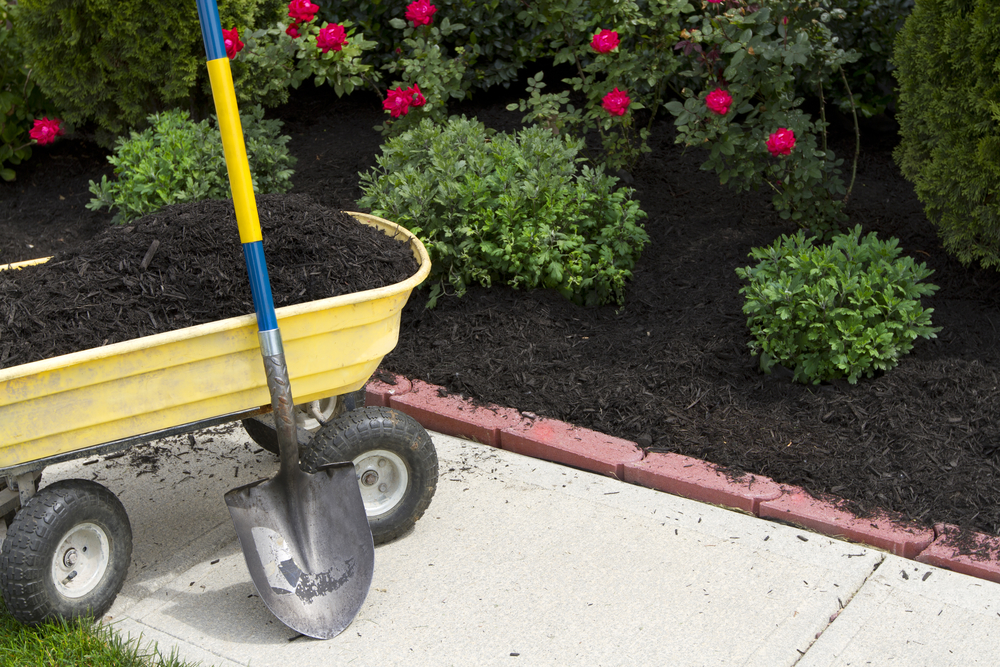To store mulch, keep it in a dry, shaded area with proper ventilation. Mulch should be stored in a dry, shaded location with good airflow to maintain its quality and prevent it from becoming damp or moldy.
By following these guidelines, you can ensure that your mulch remains usable for a longer period of time. Whether you have excess mulch from your garden or want to store some for future use, it is important to store it properly to prevent any damage or spoilage.
We will explore the best practices for storing mulch, including suitable storage locations and essential tips to maintain its freshness. By implementing these suggestions, you can ensure that your mulch stays in optimal condition and can be used effectively in your gardening projects.

Credit: thedirtbag.com
How to Store Mulch: Step by Step Guide
Mulch Storage Tips
Mulch storage is essential for maintaining its quality. To choose the right storage location, consider an area that is well-ventilated and away from direct sunlight. Creating proper storage containers will help in preserving mulch for longer. Use plastic bins or trash cans with lids to prevent pests and moisture damage.
Additionally, covering the mulch with a tarp or an old sheet will protect it from harsh weather conditions. Adequate coverage will prevent the mulch from getting soggy or drying out. Remember that moisture control is crucial to avoid the growth of mold and decay.
By following these mulch storage tips, you can ensure that your mulch remains fresh and effective for future use.
Best Practices For Storing Mulch
Storing mulch properly is essential for maintaining its quality over time. To ensure proper moisture levels, it is important to keep mulch in a dry and cool location. Avoid storing it in areas with excessive humidity or direct sunlight. This will prevent mold and mildew from developing, which can negatively impact the quality of the mulch.
Additionally, regularly check the moisture levels of stored mulch and make adjustments as needed. Proper ventilation is also crucial to prevent the buildup of moisture. By following these best practices, you can ensure that your stored mulch remains fresh and of high quality.
So, take the necessary steps to store mulch correctly and enjoy its benefits in your garden.
Long-Term Mulch Storage
Storing mulch for extended periods requires careful attention to prevent decomposition. Rotating the mulch periodically helps maintain its quality over time. By moving the mulch around, you ensure that each layer is exposed to air circulation, discouraging the formation of mold or rot.
Additionally, it is important to reuse stored mulch effectively to maximize its longevity. Rather than using fresh mulch immediately, consider reapplying the stored mulch in layers on top of the old mulch. This helps maintain a consistent depth and minimizes decomposition.
Remember to keep the stored mulch in a cool, dry place to avoid moisture build-up. With these practices in place, you can successfully store mulch for the long term, saving time and effort in the process.
Frequently Asked Questions Of How To Store Mulch
Where Is The Best Place To Store Mulch?
The best place to store mulch is in a cool, dry area with proper ventilation to prevent mold and moisture.
How Do You Store Mulch Long Term?
Store mulch long term by keeping it in a cool, dry place to prevent rot and mold.
How Long Can Mulch Be Stored?
Mulch can be stored for up to a year, but it’s best to use it within six months for optimal effectiveness.
How Do You Keep Mulch From Rotting?
To prevent mulch from rotting, follow these steps: 1. Layer your mulch at a thickness of 2-4 inches to promote airflow and prevent moisture buildup. 2. Avoid piling mulch against tree trunks or plant stems to prevent excessive moisture retention. 3.
Regularly inspect and remove any compacted or matted mulch to allow for water drainage. 4. Consider using mulch alternatives, such as gravel or rubber, in high-moisture areas prone to rot.
Conclusion
Properly storing mulch is essential for its longevity and effectiveness in your gardening efforts. By following a few simple guidelines, you can ensure that your mulch remains in great condition and provides the maximum benefits for your plants. First and foremost, remember to store your mulch in a dry and well-ventilated area.
Moisture can cause mold and rot, rendering your mulch useless. Additionally, keep the mulch covered to protect it from rain and direct sunlight. It’s also important to store your mulch in a manner that makes it easily accessible for future use.
Consider using labeled containers or bags for easy identification and organization. This will save you time and effort when it comes to spreading the mulch later on. Lastly, regularly inspect your stored mulch for any signs of pests or damage.
Any compromised mulch should be discarded to prevent the spread of pests or diseases to your plants. By following these simple storage tips, you can prolong the shelf life of your mulch and ensure its effectiveness in nurturing your garden’s health and beauty.
Happy gardening!

